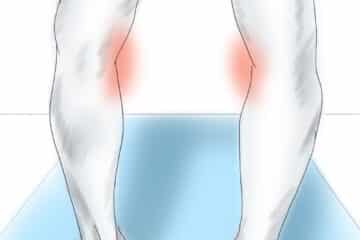
Knee Replacement:
Many changes have taken place over the last decade with regards to knee replacements. These changes have occurred in many areas:
- Who is a candidate for a knee replacement: Decision making principles
- Our approach – or how we open the knee joint
- Computerized placement of the knee replacement
- MAKOplasty robot partial knee replacement
- Pain management protocols
- Pre-operative infection control
Am I a candidate for a knee replacement?
Millions of americans suffers from osteoarthritis of the knee. Their cartilage has worn down, their knees are swollen and painful. Many patients with osteoarthritis of the knee can be managed with oral medications, injectable medications such as Synvisc or Orthovisc, physical therapy and activity modification. These methods work for many… for a while. Then you notice you fail to respond as well. Then the injection works for only a brief period of time. What next? Your surgeon might mention that you are a candidate for a knee replacement. Are you a candidate? To be honest, that depends on you! This is a quality of life decision. This is a shared decision making process. You are the one who ultimately determines when a knee replacement is necessary! It is YOUR quality of life that is being interrupted.
“Minimally invasive knee replacement”
Our surgical approach to the knee has evolved over years. Our incisions are shorter… but more important… once we are under your skin we are minimizing the amount of muscle or tendon which is cut. This “minimalistic” approach to the knee can shorten your recovery process (although it is still a very painful procedure with a long recovery process). Some of us, myself included, will utilize a “sub-vastus”, muscle sparing approach for your knee replacement. This approach can improve your post-operative function since no muscle or tendon was cut during the process of placing the knee replacement.
Computer Navigation and Knee Replacements:
Computer navigation has improved our ability to “nail the alignment” of your knee replacement more often than previous techniques allowed. Computer navigation enables us to see how the new knee is being placed before any cuts are made for your new knee replacement. We now know that if the knee is not placed within a few degrees of what we call a neutral axis that it may go on to loosen too early and thus fail and potentially require further surgery.
VOLUME MATTERS!
This is an extremely important consideration. Recent scientific literature has shown that the number of knee replacements your surgeon and the hospital performs can significantly affect the chance of you having a good results and avoiding a complication. Currently accepted suggestions are that your surgeon performs at least 75 knee replacements a year and an institution, nearly 300 knee replacements per year. Your risk of having a knee not put in properly, or the risk of developing an infection, or other complication increases significantly if these numbers are not used as a baseline for comparing the surgeons you are considering.
MAKOplasty Robot:
The manufacturers of the MAKO robot will tell you that this is the only way that a partial knee replacement should be performed. Well… that not necessarily true. While the MAKOplasty robot can be a useful tool, however, the experience of your surgeon, the proper sizing of the implant, the surgical approach to your knee and the pain protocol used after surgery have more to do with the overall success of the procedure than the MAKOplasty robot. There are some other issues with the robotic approach that are beyond the scope of this brief introduction that I would be more than willing to discuss with anyone. Robots may have a roll in the future of knee replacments and there is a lot of research being performed in this space.
How much will my knee replacement hurt?
Knee replacements are by far one of the more painful procedures we perform. Thankfully our ability to manage that pain has changed dramatically over the last few years. This is termed a multi-modal approach to pain management of a knee replacement and it involves:
- The use of regional (spinal) anesthesia
- The use of nerve blocks or catheters to drip pain medicine on the nerves for days after surgery
- The use of a variety of medications to deal with the multitude of pain “pathways” that exist in our body
- The use of a complex mixture which is injected around your knee during surgery.
- Early mobilization or movement
- Surgery without the use of a tourniquet which minimizes bleeding and swelling after surgery
- The use of a medication we can TXA which limits bleeding and thus swelling after a knee replacement.
Minimizing Risk of Infection of a Knee Replacement:
An infected knee replacement (general risk about 1%) is a nightmare from a patient’s perspective. It requires more surgery and ends with a knee that is usually stiff and bothersome. What can you do to minimize the risk of developing and infected knee replacement?
- Let you surgeon know if you have history of resistant infections (MRSA).
- Gargle with anti-septic mouthwash the night before and the morning of surgery
- Consider a full dental exam and cleaning two weeks or so before your replacement
- Brush your teeth twice, the night before, and the morning of surgery
- Shower with an anti-septic soap the evening before, AND the morning of surgery
- Do NOT shave that leg for at least one week prior to surgery
- Do not allow the skin to become sun-burned prior to surgery.














I am scheduled for knee replacement surgery and am having mixed feelings about proceeding as scheduled. I dont want to have surgery but feel I must because my knee has started to go crooked. This worries me far more than the pain. The doctors say it will only get worse, and I don’t want to end up unable to walk. Do you think I should proceed even though I have all this apprehension about doing it?
That’s impossible for me to answer :-( Everyone is nervous as the date of surgery gets closer. This is a quality of life decision. Maybe a second opinion will help you make an informed decision.